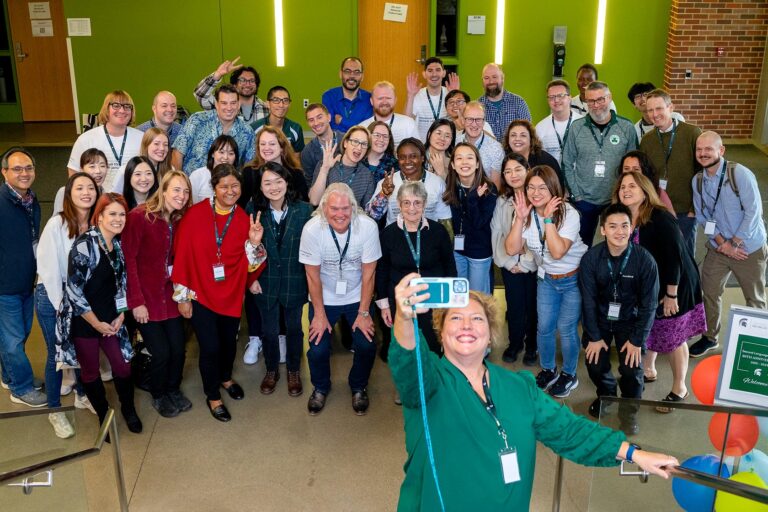Tatsuya Aoyama, a second-year M.A. student in the Teaching English to Speakers of Other Languages (TESOL) program, spent this past summer in Washington, D.C., where he worked as an intern at the Center for Applied Linguistics (CAL) on two different research projects.
Aoyama was a member of the Center for Applied Linguistics’ test development team and mainly focused on the WIDA ACCESS speaking test, an English proficiency test for K-12 students in the United States.
“CAL was such a lovely place to work, where you get to meet people of diverse language backgrounds but who have the same passion for applied linguistics,” Aoyama said. “Also, D.C. is an awesome place to spend your summer, and I would love to go back whenever I have a chance!”
In one of the research projects Aoyama worked on, he investigated the effect of task variables on the linguistic features (e.g., complexity, accuracy, fluency) of the students’ oral response. As opposed to some studies that specifically design a tightly controlled task to measure the effect of one particular variable on the students’ performance, this research study was aimed at developing a systematic way of coding existing tasks to investigate how different tasks elicit different oral responses.

“Even though this research was challenging as few studies have attempted to develop a coding scheme to meaningfully categorize existing test items, I was truly appreciative of how much trust my supervisor had in me to work on it,” Aoyama said.
The other research project Aoyama worked on involved the development process of a pragmatics test that the Center for Applied Linguistics is internally creating.
Pragmatics skill is notoriously difficult to define, and it was Aoyama’s job to research the subcomponents that constitute the construct of pragmatics skill. Then, based on this research and previous studies, he revised the tentative tasks that the center has as part of the pragmatics test so that those taking the test could fully exhibit their pragmatics skills in various contexts.
“I particularly liked this research project,” Aoyama said, “because the tangibility and specificity of the revision work provided me with a fresh and more real-world-oriented perspective that I have never taken before when reading research articles.”


